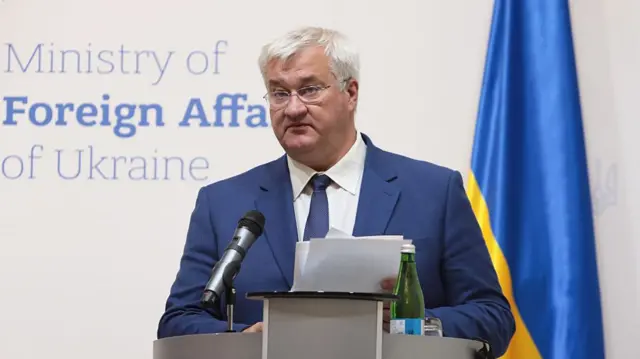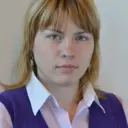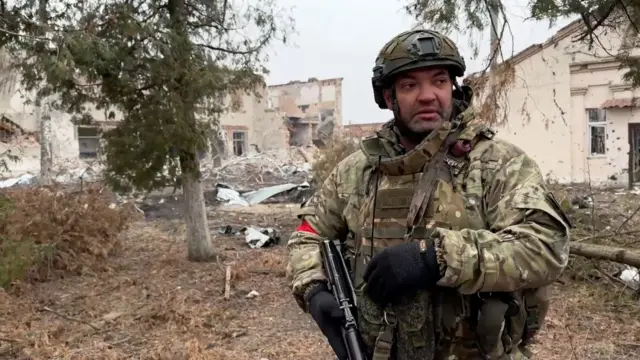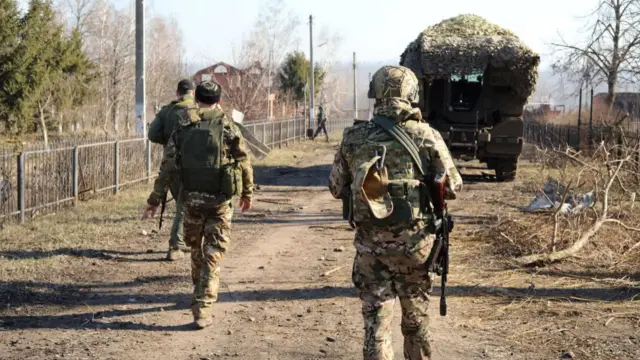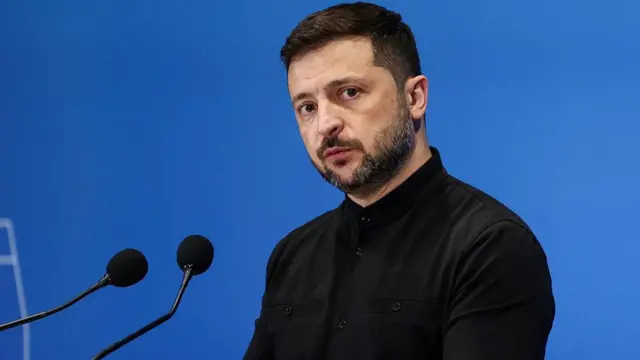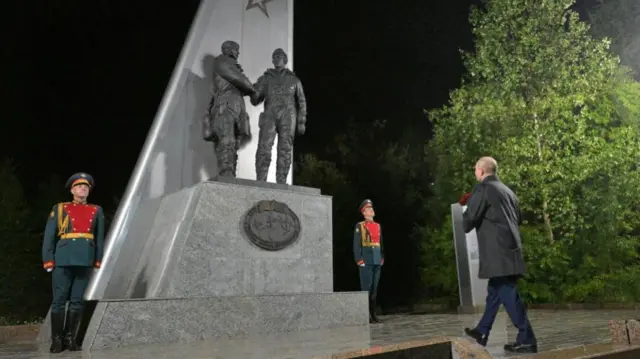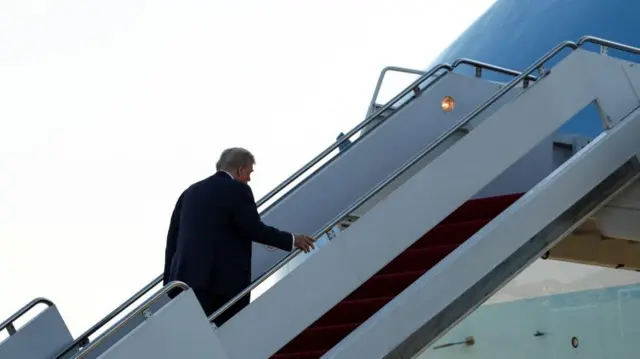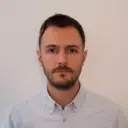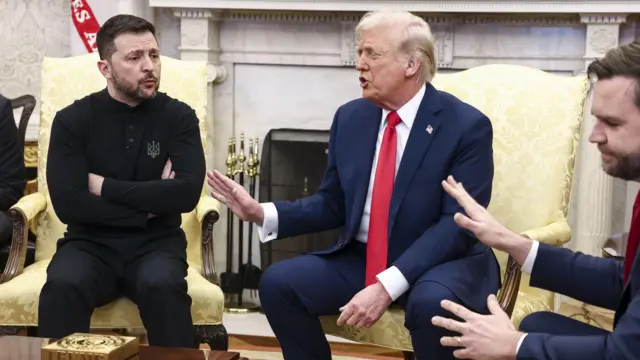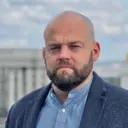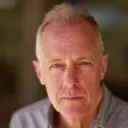As Trump travels to Alaska, he is already looking to a second summitpublished at 17:49 BST 15 August
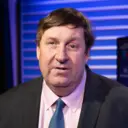 Gary O'Donoghue
Gary O'Donoghue
Chief North America correspondent in Anchorage
"High stakes" is how Donald Trump characterised his meeting with Vladimir Putin as he embarked on the seven hour flight from Washington DC to Alaska.
He's already described the chances of failure as around 25% but it's far from clear whether that degree of optimism is shared by the Russian president and there's little indication that he's prepared to agree to a ceasefire, let alone a wider peace deal.
The Kremlin has said it expects the talks to last for six to seven hours - not something that is reflected in the current White House schedule.
Donald Trump is already looking ahead to a second meeting - possibly involving Ukraine itself and some European powers - but today is a huge hurdle to jump before anything like that can happen.
